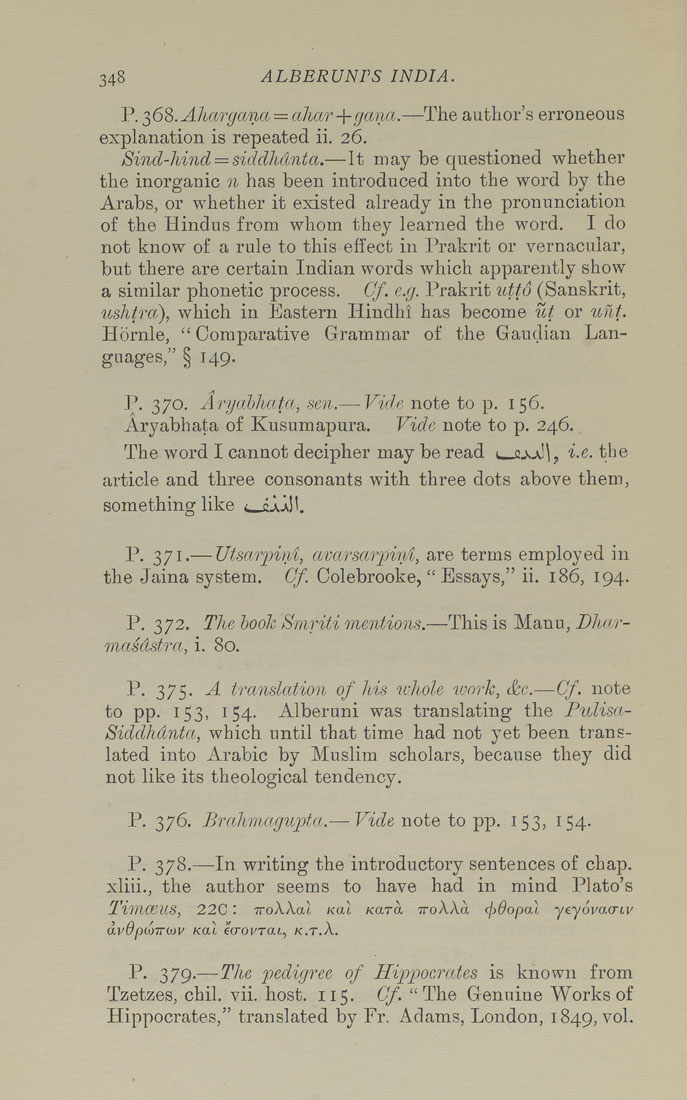348 ALBERUNTS INDIA.
P. 368. Ahargctna = ahtir -\-getna.—The author's erroneous
explanation is repeated ii. 26.
Sind-hind = sidelhdntct.—It may be questioned whether
the inorganic n has been introduced into the word by the
Arabs, or whether it existed already in the pronunciation
of the Hindus from whom they learned the word. I do
not know of a rule to this effect in Prakrit or vernacular,
but there are certain Indian words which apparently show
a similar phonetic process. Gf. e.g. Prakrit utto (Sanskrit,
ushtra), which in Eastern Hindhi has become ut or itnt.
Hornle, " Comparative Grammar of the Gaudian Lan¬
guages," § 149.
P. 370. Aryabha/re, sen.— Vide note to p. 156.
Aryabhata of Kusumapura. Vide note to p. 246.
The word I cannot decipher may be read w_j;j.a!1j i.e. the
article and three consonants with three dots above them,
something like <__£aJ^!1.
P. 371.— Utsctrpiini, ctvetrsctrqnni, are terms employed in
the Jaina system. Gf. Colebrooke, " Essays," ii. 186, 194.
P. 372. The book Smriti mentions.—This is Manu, Dhetr-
metsdstrct, i. 80.
P. 375. A translettion of his whole work, &c.—Gf. note
to pp. 153, 154. Alberuni was translating the Pidiset-
Siddhdntet, which until that time had not yet been trans¬
lated into Arabic by Muslim scholars, because they did
not like its theological tendency.
P. 376. Brcthmaguqjta.— Vide note to pp. 153, 154.
P. 378.—-In writing the introductory sentences of chap,
xliii., the author seems to have had in mind Plato's
Timceus, 22c : TroAAat Kat KaTa TToXXd cjidopal yeydvaatv
dvdpwTTWv Kal ea-ovTo.L., k.t.X.
P. 379.—The pedigree of Hip)pocrates is known from
Tzetzes, chil. vii. host. 115. Gf. "The Genuine Works of
Hippocrates," translated by Fr. Adams, London, 1849, vol.
|








